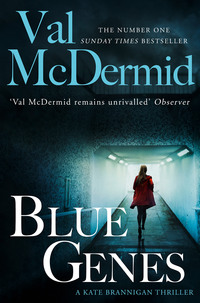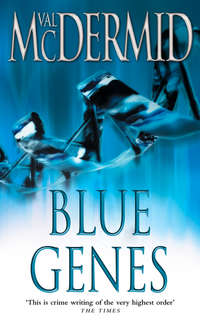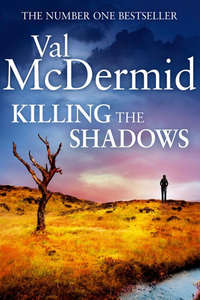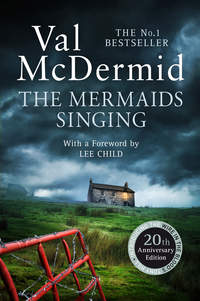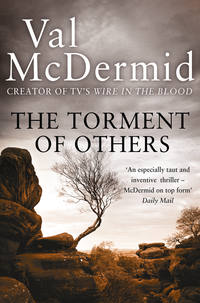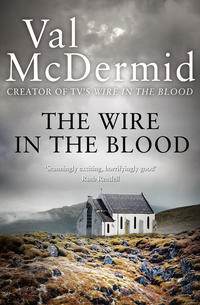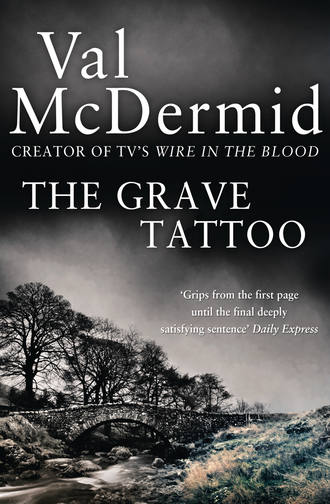
Полная версия
The Grave Tattoo
‘Dr Wilde, I agree that what you’re proposing would make gripping viewing. But there’s no way to short-circuit the commissioning process.’
River snorted. ‘What about those instant documentaries that get whipped out of the hat whenever there’s some major disaster or political scandal? You find a way of circumventing protocol then.’
Phil Toner sighed. ‘A body in a bog in the Lakes isn’t a matter of major national significance. Now, if you’d like to come in some time next week…’
‘Not good enough. Look, Phil, why don’t you go out on a limb and make the damn thing anyway? What’s the worst outcome? You end up with a riveting regional series that’s cost you next to nothing. And if it turns out as good as we both know it should, you can present the network with a great coup that cost peanuts. Come on, you know it makes sense.’ She sensed the hesitation on the other end of the line. ‘Phil, did I mention I’m bloody gorgeous? And that the camera loves me?’ she added, a bubble of laughter in her voice.
She was rewarded with a low rumble of mirth. ‘Not to mention that you’ve come up with a great title. Let me think about it,’ he finally said. ‘I’ll get back to you.’
‘When?’ River knew she had a reputation for bloody-mindedness; she preferred to think of it as tenacity.
‘Close of business today. I’ll have an answer for you.’
‘Thanks, Phil. I’ll look forward to your call.’ River put down the phone and punched the air. ‘Yes!’ She jumped to her feet and hurried out of the glorified cupboard the University of Northern England, in a rare display of wit, described as her office. Ten seconds later she was back through the door, grabbing a folder from her desk and almost running out again.
She found her head of department peering dubiously at a human jawbone. Donald Percival was a man given to doubt. He distrusted certainty unless it was backed up with impeccable scientific data. His small mouth was permanently pursed in disapproval and River would have been prepared to swear that every time she entered his presence, his knitted brows grew ever more tortured. When she bounced into the lab, his shoulders seemed to hunch protectively around his artefact and he made her wait impatiently for a full minute before he turned his watery blue gaze on her. ‘Good afternoon, Dr Wilde,’ he said.
‘Marvellous news, Professor,’ River said. ‘It looks as if I’ve got Northern TV on board to make a documentary of the investigation into the Fellhead cadaver. That means we’ll be able to go well beyond the basic work you’ve already granted me funding for.’
Percival frowned. ‘Television? Is that a good idea? Do we want the cameras looking over our shoulder as we work?’
River brushed the objection aside with a sweep of her hand. ‘They won’t get in the way.’
‘Is it sending the right message about this department to the wider world?’
‘I think it’s showing the wider world that we do this well. Which in turn means more outside projects coming to us, bringing money into the department,’ River said, shrewdly going for the Achilles heel of all contemporary academics. ‘More money means better equipment and more students,’ she added, never one to shrink from over-egging the pudding. ‘And as far as this project goes, it means we can afford full-body CAT scanning, stable isotope analysis, cemental annulation. The full bells and whistles. And we can get the palaeo-botanists and archaeological sciences people on board without them taking fright over their budgets. Just think of the benefit to the students of such cross-discipline teaching. Great practice for working in the field.’
Percival looked peevishly at the jawbone, turning it over in his gloved hands. ‘You’re here to teach and research, Dr Wilde, not to use this department as a springboard for personal aggrandisement.’
It was a low blow, but it told River that Percival couldn’t come up with a decent professional objection to her proposal. She grinned. ‘I’m not pitching to become the next telly don,’ she said. ‘What I care about is the work. And I’m willing to do whatever it takes to serve the work best.’
Percival gave a weary sigh. ‘I know that, Dr Wilde. That is why I chose to employ you here. Very well. You may proceed with this. But make no firm agreement with these people until I have seen the terms and conditions of the arrangement.’
‘Thank you, Professor,’ River said, resisting the urge to punch the air again. ‘You won’t regret it.’
He sighed again. ‘Let’s hope not. Now, before you rush off to make-up, perhaps you could cast your eyes over this.’ He held out the jawbone to her in what she recognised as a gesture of reconciliation. ‘I find myself somewhat puzzled by the nature of the wear on these molars.’
* * *
Her own work beyond her, Jane Gresham was attempting to bring her mind to bear on the undergraduate seminar she was supposed to be conducting the following week on the role of the pathetic fallacy in Romantic poetry. So devoid of inspiration had she been that she’d resorted to dredging the bound volumes of the Proceedings of the Modern Language Association for anything that might remotely help shape her session. She was engrossed in a particularly dull article about Coleridge’s early work when Dan’s head appeared over the top of her library carrel.
‘Thought I’d find you here,’ he said, sounding faintly smug.
‘It’s hardly rocket science,’ Jane said repressively. ‘Considering I always sit in the same carrel.’
He came round the side of the partition and pulled a face when he saw what she was doing. ‘My God. If PMLA comes, can despair be far behind?’
Jane pushed the book away. ‘It’s already here.’
‘So let me take you away from all of this and buy you a coffee.’
‘I shouldn’t, really. I need to prepare this seminar.’
Dan raised his eyebrows and pulled down the corners of his mouth. ‘Trust me, you’ll feel better about it after a swift injection of caffeine and half an hour in my company.’
Having put up the pretence of a fight, Jane stood up and pocketed her pen. ‘I’m leaving my notes here,’ she said, warning him that there were limits to the extent of her willingness to be distracted.
Without further negotiation they walked out of the building and round the corner to the Bear and Staff. The pub served decent coffee and, unlike the student refectory, still allowed smokers to indulge their vice. Jane perked up as soon as Dan returned to their corner booth with two large mochas topped with a pyramid of whipped cream. ‘You are such a bad man,’ she teased.
‘I don’t believe in half measures.’
‘I don’t know how you stay so slim,’ Jane complained, eyeing the washboard stomach beneath the white T-shirt.
‘Lots of exercise, darling. And cigarettes. They kill the appetite, you know.’
‘Not to mention those of us who have to put up with your smoke.’ Jane took an appreciative sip of her drink, savouring the contrast between the cool cream and the hot brew beneath. ‘Mmm. Just the ticket. So, Dan, why am I here?’
He feigned an expression of innocence. ‘Jane, I’m surprised at you. It’s not like I’ve never invited you out for coffee before.’
Jane rolled her eyes. ‘You’ve never gone to the trouble of tracking me down in the library and hauling me off to the pub before. I’ve got work to get back to, so don’t make me drag it out of you.’ With a shrug he spread his hands in a gesture she recognised. Small boy playing the cute innocent card, she thought. You’re getting too old for that one, Danny Boy.
‘What can I say? You nailed me, babe. Yes, I do have an ulterior motive.’
‘Well, you better tell me what it is, because I don’t have time to play twenty questions. Spill.’
Dan smoothed his eyebrow in a gesture she found familiar from watching him in seminar groups. It was his way of buying time. ‘What we were talking about the other day–Christian and Wordsworth? It’s been kind of bugging me,’ he said.
‘Bugging you how?’
‘We’ve been friends for a long time now, Jane. I think I know you pretty well.’ He nodded to himself for emphasis. ‘I don’t think I realised until the other day how much weight you place on the Fletcher Christian story. And I’d say, of all the people I work with, you are the least likely to be taken in by a baseless rumour.’
Jane felt a sudden tension in her neck. ‘Very flattering, Dan. But we’ve all got our blind spots. Arthur Conan Doyle believed in fairies. Hugh Trevor-Roper believed in the Hitler Diaries. I believe in Wordsworth’s lost epic. It’s really not worth losing sleep over.’
‘Good try, Jane, but no cigar. I don’t believe you. I think there’s more to this than you told me. And I want to help you.’
Jane stared into her cup. She’d held this secret to herself for so long, there had been times when she had wondered if she had dreamed it. She’d told no one, not even Jake, in spite of the fact that she loved him and, if anyone could authenticate what she’d seen, he was the one. Or at least, he would know someone who could. And having denied it to Jake, how could she offer it to Dan? Though it was hard to deny that he might be helpful to her. His own postgraduate work on the linguistic congruences among the Lakeland Romantics could well help to verify anything she found as being typically Wordsworthian in its use of words and grammatical structures. Still, her reluctance held out. ‘Please, Dan. Take my word for it.’
‘Jane, look at me,’ he said, his voice concerned and serious. She lifted her head. ‘Dreams are for chasing. How are you going to feel if there is something to be found and somebody else finds it?’
The question she had asked herself so many times. She pushed her curls back from her face and made a decision. ‘How well do you know the Dove Cottage archive?’
Dan looked surprised. Whatever he’d been expecting, she thought, that hadn’t been it. ‘I’ve done some research there, when I was doing the linguistic comparisons between De Quincey’s early work and Wordsworth’s prose. It’s a vast archive. More than fifty thousand items, or something like that.’
‘So many that it’s never really been definitively catalogued. Anyway, they’re about to open a new library and study centre, so a lot of the material has been boxed up waiting for the move. More or less inaccessible to anyone needing to study it.’ Jane paused, shaking off the last traces of doubt.
‘So,’ she continued, ‘I wanted to look over some family letters and, typically, what I needed was packed away. But I’ve known Anthony Catto, the centre director, since I was at school. I worked there a couple of summers when I was an undergraduate. So I persuaded Anthony to let me go foraging. And in among all the stuff that I expected to find, I came across something that I’d never seen referred to anywhere in the literature.’
‘Dramatic pause,’ Dan said drily. ‘Come on, Jane, you’re killing me here.’
‘It had been tucked into the wrong envelope, along with the letter that should have been there. I don’t expect anyone had even noticed it. The letter it was with is of no particular significance, you see. It probably hadn’t been touched for years.’
‘Jane,’ Dan said loudly.
She closed her eyes for a moment, summoning the image from her memory. ‘It was a letter from Mary Wordsworth to one of her sons. John, I presume, since she refers to children but not a wife and John was a widower. “My beloved son, I trust you and the children are in good health. I have found this day troubling matter in your father’s hand. It may surprise you that, in spite of the close confidence between us, I was in ignorance of this while he lived, and wish heartily I had remained in that state. You will easily see the need for secrecy while your father lived, and he left me no instructions concerning its disposition. Since it closely touches you, and may be the occasion of more pain, I wish to leave to you the decision as to what should be done. I will convey the matter to you by a faithful hand. You must do as you see fit.”’ Jane opened her eyes and looked seriously at Dan. ‘You see what that could mean?’
Dan frowned. ‘It could mean almost anything, Jane,’ he said gently.
‘Well, no, Dan. William and Mary had an extraordinarily intimate marriage. They didn’t have secrets from each other. Nevertheless, they were good at keeping secrets as a family. Look how long it was before the world got to know about William’s affair with Annette Vallon and their illegitimate daughter. Whole generations went by and not a whisper of scandal emerged.’
‘OK, OK, I grant you that. But all the same…’
Jane swept on regardless. ‘For William to have kept something from his wife, it must have been a really big deal. Life and death sort of stuff. That’s one point. The other is the bit about how this matter closely touches the son. Now, John was married to Isabella Christian Curwen, who was the daughter of Henry Christian Curwen. And he was Fletcher Christian’s cousin. By the time of Wordsworth’s death, Isabella was dead. And the marriage had been a pretty miserable one for the most part. She was a spoiled little rich girl who enjoyed poor health. And I mean enjoyed. John had already suffered plenty at the hands of the Christian Curwens. I’ve racked my brains to come up with an alternative, but the only thing I can think of that explains both the secrecy and the possible occasion of pain for John is if I’m right and Fletcher not only came back but also told William the whole story.’
‘It’s still pretty tenuous,’ Dan said. ‘I mean, it could have been something discreditable about Isabella that William had found out about.’
Jane looked disappointed. ‘See, I told you it was just a bee in my bonnet,’ she said shakily, trying to make light of it.
‘No, don’t get me wrong. I think it’s more than that. Whatever Mary was referring to, it’s something nobody else has dealt with and that in itself is interesting from a scholarly point of view. I think you need to follow this up. And soon, Jane.’
‘I’ve sat on it for more than a year now, Dan. It’ll wait till I have some time to pursue it properly through the new archive.’ She drained her coffee and pulled her coat round her, preparing to leave.
‘You think so?’
‘Why wouldn’t it?’
‘Jane, you’re the one who pointed out the bog body had what sounded like South Sea tattoos. What if that body does turn out to be Fletcher Christian? After we spoke the other day, I did some basic research online. And one of the things I read was that Fletcher was supposed to have set up as a smuggler after he came back. That’s exactly the sort of career that could lead to a mysterious death out on the fells. It really could be him. And if it is, the whole world and his wife will be all over every Lakeland archive. And it’ll be too late. Somebody else will have stolen your dream.’ He gripped her hand tightly. ‘You need to move fast. And you need help. Help with expertise. And that would be me.’
‘I knew I could place my trust in. You, Willy,’ he said. ‘My brother spoke of your kindness in defending me against those calumnies published against me in the public prints.’ Indeed, I had written to the Editor of the Weekly Entertainer denouncing the pack of lies that had been published under my old friend’s name, as a personal kindness to his brother Edward. ‘How came you to be here?’ I asked him. He said it was a long tale & one that he would be happy to share with me. ‘There, have, been vile lies spread about me & I would have the truth told. I can think of no man better fitted to render my story fit for the public than you, my old friend.’ I will confess I found myself astonished at the notion of becoming his amanuensis, but the more I pondered, the more it seemed to me a fitting subject for verse. The composition of my long Poem on my life has given me a taste for the epic over the lyric, & epic this tale will surely be, encompassing as it must the best and worst of man’s nature.
6
Jake Hartnell paused for a moment in the warm shade under the corrugated portico of Koutras’s mini-market, hefting the heavy plastic bags in one hand. It had been three weeks since he’d left England, three weeks since he’d heard a news broadcast or read anything beyond a casually glimpsed headline in a British newspaper. The sun might have darkened his olive skin to the point where he could almost pass for a southern Mediterranean native, but he knew differently. Catching sight of the familiar mastheads, he felt a sudden unexpected stab of homesickness.
He crossed the narrow road and dumped the shopping in the back of the open 4×4, then walked back to the rack of foreign-language newspapers. He reckoned the papers would be a few days out of date, but cast adrift as far as he was, it made no odds. He pulled The Times and the Guardian out of their slots and went back into the chill air conditioning to pay the extortionate prices the overseas editions commanded, then set off on the short drive back with a curious lightening of the spirit.
When Caroline Kerr had invited him to escape from London to her place on Crete, he’d imagined a sumptuous villa complete with terrace and olive grove, in spite of her use of the qualifier ‘little’. After all, her London home was a three-storey house five minutes’ walk from Hampstead Heath, exquisitely furnished with the sort of antiques that quietly stated their viewer was in the presence of money old enough to have taste as well. Besides, people of her class never boasted about what they had. Their ‘little’ places in the country were generally massive Georgian rectories or cottages whose sizes had been trebled over the passage of time. So his expectations had been high.
The twenty-minute drive from the airport across the burnt red and dusty sage green of the Akrotiri peninsula had promised little, but when the turquoise sea came into view, his heart had lifted. Caroline had barrelled the 4×4 down a steep road past a tiny white chapel carved into a rock escarpment to a half-moon beach dominated by a wooden taverna with tables spread over the sand. She’d stopped abruptly behind the taverna to pick up her keys. Jake had looked around, appreciatively noting the presence of several imposing houses in the hinterland of the bay, wondering which would play host to his new life in the sun.
To his surprise, Caroline had driven past the houses, up a track by a small concrete boat slip to a trio of cottages perched on a narrow ridge overlooking the bay and the wider sea beyond. ‘Here we are,’ she’d said with a tone of deep satisfaction. Jake could hardly hide his disappointment as he followed her across a small paved patio into the tiny interior. He hadn’t walked away from his life for this, he heard himself curse inside his head. The door opened straight into a small living room, furnished with a couple of armchairs, a plain table with four dining chairs and an expensive sound system. Along one wall was a rudimentary kitchen–sink, fridge, oven, hob, two cupboards and a work surface. The cool tiled floor was bare of rugs. On a shelf above an open fireplace a group of small Minoan figures clustered. They were the only decoration in the room. Caroline made a soft noise of satisfaction. She crossed the room in a few strides and opened one of the two doors leading off. ‘This is the bedroom,’ she said. ‘Just dump the bags in there.’
It was another plain room, dominated by a wide, carved wooden bedstead. A mosquito net hung from the ceiling. The only other furniture was a simple wardrobe. All that lifted it above the most basic backpacker accommodation was a pair of magnificent silk Bokhara rugs, one on either side of the bed. Christ, he thought, this was a scant step above bloody peasant life. Jake had dropped their suitcases on the floor and returned to the living room. Caroline gestured to the other door. ‘The bathroom,’ she said. ‘A little better than primitive Greek, I think you’ll find.’
Curious, he’d opened the door. He knew from Caroline’s London house that she was serious about her ablutions, but he’d experienced Greek plumbing before and had no high hopes. To his astonishment, he found himself in a smaller replica of the Highgate master bathroom. Marble floors, a deep bathtub, a two-person shower cubicle, twin washbasins; all the luxury modern design could provide. ‘Bloody hell,’ he said, backing out. ‘How did you manage that?’
Caroline tossed her dark blonde hair away from her face in a familiar gesture of indifference. ‘Contacts, darling, contacts.’ She walked into the bedroom and unfastened her suitcase. ‘Clean clothes, then a very big drink.’
Sounded good to Jake. ‘It’s wonderfully simple,’ he said, following her lead and raking through his case for some shorts. ‘But how on earth do we work here?’
Misunderstanding, Caroline laughed. ‘I know. It’s so tempting. The sea, the beach, the taverna. It’s hard, but I have to remind myself that the only way I can justify spending two months a year here is to keep the wheels turning.’
‘No, I meant practically. You don’t have a computer, a fax, a phone line as far as I can see.’
Caroline straightened up, shorts and T-shirt in her hand. ‘Honestly, Jake, you’re so twentieth century sometimes. Laptop, Blackberry, wireless internet connection–that’s all I need. I get the auction catalogues online, and if there’s anything I want to bid for, I do it by phone. And I have good contacts locally who keep an eye out for anything they think might interest me. Believe me, there’s some extraordinary stuff to be had over here. Wonderful illuminated texts from the monasteries, beautiful sheet music from the Middle Ages that is so lovely one wants to weep. I promise you won’t be disappointed with what we find on this trip. It never fails to astonish me. Reminds me of the sheer joy of having this wonderful stuff passing through my hands. You’ll see.’
‘I thought they were pretty strict about antiquities not leaving the country?’ Jake asked idly as he stripped off jeans sticky from the plane and the drive.
‘They are. But there are always ways,’ she said, her tone repressing further questions.
He’d realised by now what she meant by that. For someone whose principal business lay in the buying and selling of bits of paper–holograph letters, manuscripts ancient and modern, illuminated sheet music–it was easy to send irregularly acquired material back to the UK. As long as the envelope looked like an innocuous piece of business post–a brochure for a villa, say, or a prospectus for a new commercial development–nobody in the Greek or British post office was going to look twice at it. ‘In a dozen years of doing this, I’ve only lost one item in the mail,’ Caroline had told him matter-of-factly the first time they’d visited the main post office in Chania. ‘And it wasn’t especially valuable. People only take an interest if you start dressing it up as recorded delivery and insuring it. Otherwise, it gets taken for granted.’
Their days had quickly assumed a pattern. They’d sleep late then Jake would drive up to Horafakia for fresh bread, fruit and yoghurt. Breakfast on the terrace, then down to the beach for a swim. Sometimes they’d go into Chania so Caroline could meet one of her Greek contacts who would occasionally produce some piece of work that would take his breath away; otherwise, Caroline would write emails and make phone calls while Jake read auction catalogues or lounged in the sun with a book. From time to time, they would immerse themselves in a manuscript, discussing the hand of the scribe, the likely origins and, finally, its potential value. He was pleasantly surprised by how much he was learning from Caroline. Lunch at the taverna was followed by sex and sleep then drinks and backgammon. In the evenings, they’d drive out for dinner. The day would end with another bout of sexual activity. Jake was gradually beginning to understand why Caroline preferred younger lovers; men of her own age, he’d been led to believe, generally didn’t have the stamina to meet her demands. Not that he minded. He enjoyed sex and she was an enthusiastic and imaginative partner.
What he did mind was the worm of boredom that was working its way to the surface of his mind more and more frequently. Like most men in their late twenties, he’d fantasised about a life like this. Sun, sea, sex and a sugar momma to pay for it all. Caroline was a sardonically amusing companion, never clingy, seldom anything other than equable in temper and open-handed with her knowledge. But still dissatisfaction niggled at Jake.


